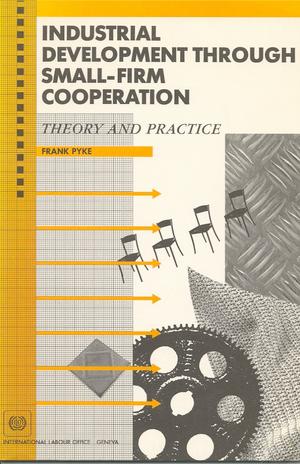Industrial Development Through Small-Firm Cooperation
İÇİNDEKİLERContents Preface 1. Some organizational principles for a dynamic small-firm industrial sector Introduction The organizational principles Achieving economies of scale Achieving economies of scope The role of cooperation Homogeneous value systems Strong collective institutions Rapid information dissemination Entrepreneurial skills Skilled labour 2. Creating an institutional framework Introduction Analysis groups Government The consensual environment The regulatory environment The benefit of appropriate regulations: The case of Italy Labour market regulation The harmonization of policies at different levels Small-firm employers' organizations Political influence Decentralization Communication and the provision of services The creation of a social consensus Trade unions and other workers' organizations Small firms as marginal actors Small firms: Potentially good contexts for labour Trade union roles in promoting small-firm industrial sectors Networking institutions Industrial networkingPromoting independent firms Promoting inter-firm networks and collaboration Information networking Sector-specific centres Network brokers Specialist consultants Other upgrading institutions Mechanisms for acquiring finance Marketing institutions Design centres Training centres 3. Concluding remarks Instruments of change Existing models Bibliography Boxes 1. Achieving economies of scale 2. Small-firm efficiency in the European and Japanese machine-tool industries 3. The ceramic tile industry - Sassuolo, Italy 4. Small-firm cooperation in Sakaki, Japan 5. Creativity and entrepreneurial spirit in Emilia-Romagna, Italy 6. The demise of North London furniture firms 7. The influence of supranational powers: The case of the European Community 8. The role of a small-firm association: The CNA, Emilia-Romagna 9. A CNA member's view of the Association 10. Sectoral service centres and telematic systems    |



